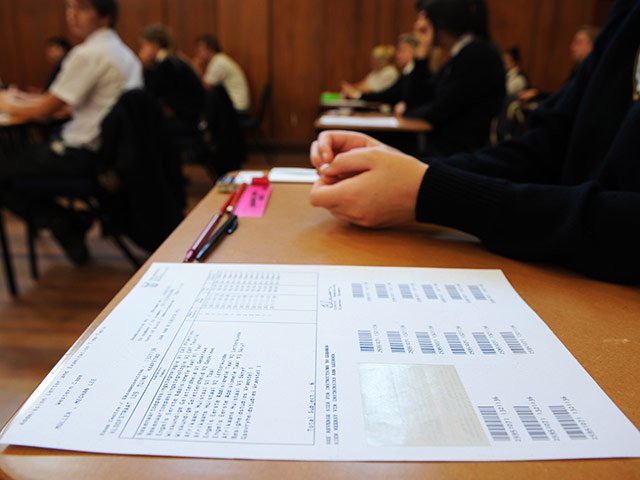Expert's exam study tips for matrics
Updated | By Anelisa Kubheka
The matric class of 2017 is turning its attention to the trial exams as the holidays and winter classes wind down.

An education expert has given some helpful tips on how Grade 12s can prepare for the crucial papers.
The June and trial exam marks play a huge role in pupils' applications for tertiary studies.
Nola Payne, with the Independent Institute for Education, has encouraged matrics to turn social media off while burning the midnight oil. It's also out with the clutter.
ALSO READ: DUT students affected by Durban strike get second chance at exam
"Something to consider using is the Pomodoro technique. You can use an egg timer. You set it for 25 minutes, working flat-out for that period of time until the buzzer goes off. Once you have done that, you take a five-minute break.
"After you have done four rounds, you take a break of half an hour. It's short spurts of focus concentration separated by five-minute breaks," she says.
She advises the following steps for rescuing the minutes that turn into hours and ultimately days - minutes spent on brainless activities instead of brain-building ones.
a) Consider using the Pomodoro technique when studying
Having a study roster is one thing. Sticking to it is another. The Pomodoro (tomato timer) technique is a fantastic and very empowering tool to get things done in a hyper-focused way, and can feel almost like a game, says Payne.
The way it works, is to sit down to your task with determination, then set a timer to 25 minutes and work intensely until the buzzer goes. Then get up, take a break of 5 minutes (do some stretches or take a quick walk – don’t check Facebook!) and get back to your books for another round. After every 4 rounds, take a break of about 30 minutes during which your time is your own to use as you please.
b) Resolve to quit social media cold-turkey for a week
It really does sound harder than it is, says Payne. She says that if you remove social media distractions and their temptations completely for a set period, your devices will soon lose their time-sucking lustre. You’ll also find that when you go back after your self-imposed period of abstinence, you would not have missed out on much at all - almost like going back to a soap or reality show after not watching it for a while.
On the pay-off side, your brain is likely to become much sharper for the experience, and potentially even less inclined to go back to unproductive time-sapping activities by default.
c) Sort out your workspace
Find a space where you can sit down and get to work immediately and optimally. Have all your books and tools ready, so that you don’t have to spend the first 15 minutes of each session tidying up and getting into the swing of things. Know what you are going to spend your time on – set a goal for each session – before you start. While it is tempting to procrastinate by filing, tidying, or reworking your roster, those are precious minutes that dilute your focus and can lead to you doing all kinds of admin unrelated to the work you need to be revising.
d) Stay mindful
While you are studying, focus on nothing else. At night, when you go to bed, and in the morning when you wake up, think about your future. Visualise why you are putting in all the hard work now, and picture your future – what you want to do with your life and how you are going to get there. The discipline and strategies you work on now will not only ensure you perform optimally when the time comes later this year, but also that you’ll continue on the solid path you’ve constructed throughout your studies and your career.
Show's Stories
-
Temu’s got a local warehouse in SA
Temu has just launched its first warehouse in South Africa! Here’s what ...
East Coast Breakfast 1 day, 1 hour ago -
Green ID book production to be discontinued in SA
The Department of Home Affairs is planning to phase out the green ID boo...
Stacey & J Sbu 1 day, 4 hours ago